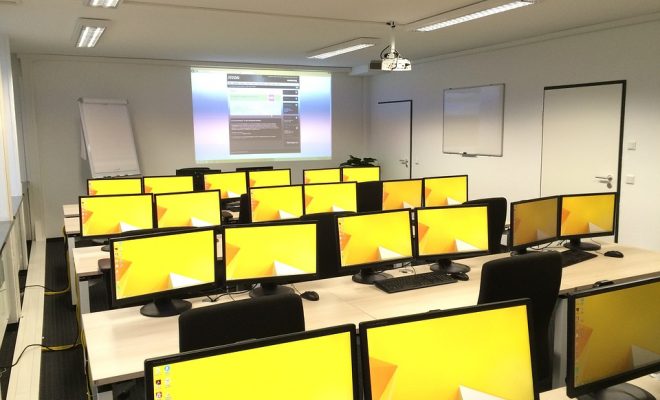Online students need more face-to-face time, not less

Shanna Smith Jaggars, Community College Research Center, Teachers College, Columbia University and Thomas Bailey, Community College Research Center, Teachers College, Columbia University
Higher education, we’re told, is rapidly heading towards huge transformation and technological disruption.
Advocates of online education promise that advances in online learning technologies – by permitting course enrolments in the tens of thousands and leveraging crowd-sourcing for peer review — will make a high quality, low cost higher education accessible to any student.
In the meantime, in the US and elsewhere, universities and colleges are swiftly expanding their offerings of what one might call “old-fashioned” online courses: classes designed by individual instructors with enrolments of 25 or so students.
In 2011, almost seven million American undergraduates were enrolled in such courses.
For the sake of these online students, as well as those yet to enrol, it is important to withdraw our gaze from the glow of what could be, and direct it for a moment toward what is. Only by examining the actual experiences of students in online courses today can we understand both the potential of online learning, and its pitfalls.
Community College Research Center at Teachers College, Columbia University, recently concluded a series of studies that took a close look at online courses
in one American state’s community college system. We found that most consisted of
readings and assignments placed online, along with “chat rooms” where students were
asked to hold discussions with their peers.
While the technologies deployed varied in
sophistication, in almost all classes one quality remained more or less constant: there
was little meaningful interaction between students and their teachers.
Students were acutely aware of this absence. They told us that if they expected to
struggle in a subject or really “wanted to learn something,” they preferred a traditional classroom where they had more contact with their teachers.
Interestingly, an analysis of the factors that predicted student performance in online classes — factors that included course design and use of technology, among others — found that only one predicted better grades: the depth of interpersonal interaction among students and instructors.
Another team of our researchers examined the role that non-academic factors play in the ability of students to successfully complete a qualification. Interviews with students and faculty made clear made clear that many students arrive at college without possessing or understanding the skills and strategies necessary for academic success.
These skills are as basic as time management, taking notes, using a library and recognising when, how and whom to ask for help.
Interestingly, interviews with online faculty made clear that they expected their students
to be relatively adept and independent learners: students had to be able to manage
their time, take initiative, and generate their own approach to mastering course material.
In other words, to be successful, online learners needed precisely the skills we found to be so deficient in entry level students.
It is perhaps not surprising, then, that our studies have found that students fail and withdraw from online courses at a higher rate — in some subjects, up to twice as frequently — than they do from “face-to-face” classes. Even more troubling, this decline in performance is steeper for groups of students, including minorities, that
are already lower performing.
In other words, existing achievement gaps between, for example, whites and blacks or females and males are exacerbated in the online classroom.
Together, these findings suggest that large numbers of college students need more, not
less support from their teachers; yet, perversely, many online courses ask students to teach themselves.
This request may be reasonable when it is aimed at well-prepared students who have the habits necessary to succeed, and most discussions about the potential benefits of online learning are held with these college-ready students in mind.
For the millions of students who arrive underprepared, however, many from families
with no higher education experience, college or university is a place they go to learn how to learn. It is unlikely that even the most responsive technologies can replace the kind of student-teacher interaction that both hard data and anecdotal evidence indicate are vital in motivating and inspiring such students to succeed.
Online learning will continue to make significant inroads in the post-secondary sector; it may even lower costs. But it remains an open question as to whether this trend will increase access to high quality higher education, or further accentuate glaring gaps in educational advantage.
To ensure the latter does not happen, universities and colleges will have to rethink their approach to online learning.
To start with, the sector should spend fewer resources expanding online offerings, and more on preparing students and training faculty for the demands of online classes.
They should be more deliberate about which courses to put online, and expend greater
effort in evaluating and enhancing student preparation.
Finally, they must require faculty
training in methods that support meaningful interaction with students in the virtual
space.
These adjustments will require time and money, and there is the possibility that truly effective online learning will not cost significantly less than traditional classroom
learning.
However, if online learning is to achieve the purported goal of helping all students attain a quality higher education, now is the time to make these investments.
![]()
Shanna Smith Jaggars, Assistant Director, Community College Research Center, Teachers College, Columbia University and Thomas Bailey, George & Abby O’Neill Professor of Economics and Education; Director, Community College Research Center, Teachers College, Columbia University
This article was originally published on The Conversation. Read the original article.
Click here to read all our posts concerning the Achievement Gap.





